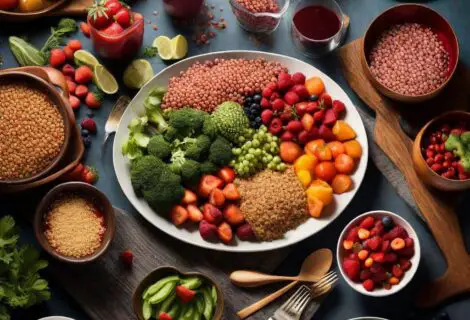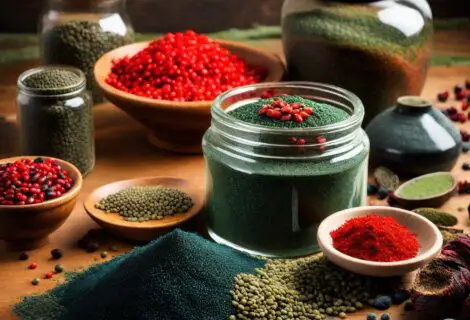Navigating Your Diet with Ozempic: Foods to Be Mindful Of
Introduction
Are you familiar with Ozempic? This wonder drug, approved by the FDA, has garnered substantial attention due to its potential in managing type 2 diabetes and even aiding weight loss. However, like every silver lining has a cloud, this drug also has its caveats. Certain foods might not jibe well with Ozempic, necessitating their cautious consumption or complete avoidance.
Unraveling The Enigma of Ozempic
Before we explore the specifics of diet and Ozempic, it’s crucial to understand what this drug does. Ozempic, or Semaglutide, is a medication designed for individuals diagnosed with type 2 diabetes. It helps regulate blood sugar levels and supports weight loss, thereby improving the quality of life for those it’s prescribed to.
How Does Ozempic Function?
Ozempic works in the body by mimicking the function of a hormone called glucagon-like peptide 1 (GLP-1). This hormone decreases the amount of sugar your liver makes, reduces hunger, and helps your pancreas produce more insulin when needed. However, for all its benefits, certain dietary choices can interfere with its efficacy.
Unlocking the Potential of Ozempic for Weight Loss: A Comprehensive Guide
The Intersection of Ozempic and Diet
When it comes to the relationship between Ozempic and food, we need to consider two major elements: high-fat meals and alcohol.
Navigating High-Fat Meals
High-fat meals and Ozempic don’t mesh well. High-fat foods can accelerate the drug’s absorption, causing blood sugar levels to drop more than desirable. So, if you’ve just had a cheeseburger or pizza, it’s best to steer clear of your Ozempic dosage for a bit.
The Impact Of High-Fat Foods On Ozempic
Why does this happen? High-fat foods cause your stomach to empty at a slower rate, meaning Ozempic stays longer in your system, which can cause a more substantial drop in your blood sugar levels.
The Role Of Alcohol In Your Ozempic Journey
Similar to high-fat foods, alcohol also has an intricate dance with Ozempic. Consumption of alcohol can increase the risk of pancreatitis, an inflammation of the pancreas. Since Ozempic works by enhancing insulin production in the pancreas, consuming alcohol might escalate the potential for adverse effects.
Consequences of Alcohol Consumption While On Ozempic
Alcohol can cause dehydration, leading to a slower elimination of Ozempic from your system. This could enhance the drug’s side effects, including nausea, vomiting, and abdominal pain.
The Journey of Mounjaro: Resilience and Grace in Weight Loss
Smart Choices: What to Include in Your Diet
While the list of foods to avoid might seem a bit daunting, there’s a silver lining. Incorporating a balanced diet filled with lean proteins, fruits, vegetables, and whole grains can help your journey with Ozempic be smoother and more beneficial.
Lean Proteins
Choosing lean proteins like chicken, turkey, fish, soy, nuts, and tofu can help maintain stable blood sugar levels while keeping you satiated.
Fruits and Vegetables
Adding a variety of fruits and vegetables to your diet will supply essential vitamins and minerals. Their high fiber content also aids in regulating blood sugar levels.
Whole Grains
Whole grains are a great source of fiber, aiding digestion, and maintaining stable blood sugar levels.
The Power of Whole Foods Plant-Based Eating: A Lifestyle Choice
Conclusion
Navigating your diet while on Ozempic might seem challenging, but with the right choices and some vigilance, it’s entirely feasible. Remember, the key lies in balance and moderation. Don’t deprive yourself completely; instead, make informed choices about what you consume. And always, consult your healthcare provider if you have any doubts or concerns.
A Closer Look at Ozempic: Weight Loss and Gastric Paralysis
Join the Conversation!
We hope this guide has given you some insight into navigating your diet while on Ozempic. Now, it’s your turn to add to the conversation. Do you have any personal experiences or suggestions that you’d like to share? Your contributions might help someone else navigating the same journey.
Drop your thoughts, experiences, and tips in the comments section below. Your voice matters in this community, and your experiences could make a real difference. Every bit of information helps in forming a more comprehensive understanding of managing life with Ozempic.
And remember, sharing is caring. If you found this article helpful, don’t hesitate to share it with your friends, family, or anyone else who could benefit from this information. Spread the word, raise awareness, and let’s make the journey with Ozempic easier together.
FAQ
1) Can I consume high-fat meals while on Ozempic? Yes, but with caution. High-fat meals can accelerate the absorption of Ozempic, causing a substantial drop in blood sugar levels.
2) Can I drink alcohol while using Ozempic? It’s not recommended. Alcohol can increase the risk of pancreatitis and intensify the side effects of Ozempic.
3) Are there any foods that can help in managing my blood sugar levels while on Ozempic? Yes. Including lean proteins, fruits, vegetables, and whole grains in your diet can help maintain stable blood sugar levels.
4) Can I eat anything I want while on Ozempic? While Ozempic does not have specific dietary restrictions, certain foods and beverages can impact its effectiveness. It’s always best to consult your healthcare provider for personalized advice.
5) Is it possible to completely avoid the side effects of Ozempic with dietary changes? No. While a healthy diet can mitigate some side effects, it is not a guaranteed solution. Always consult your healthcare provider for guidance.
- Alt text image: Diagram of Ozempic’s interaction with food items in the human body.








